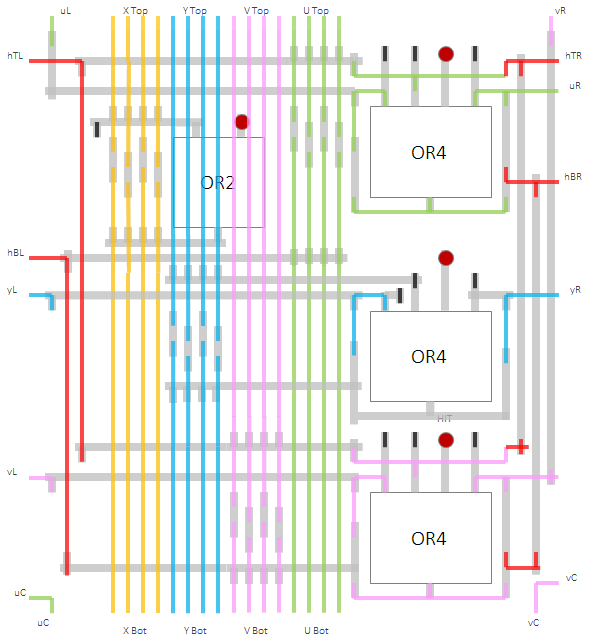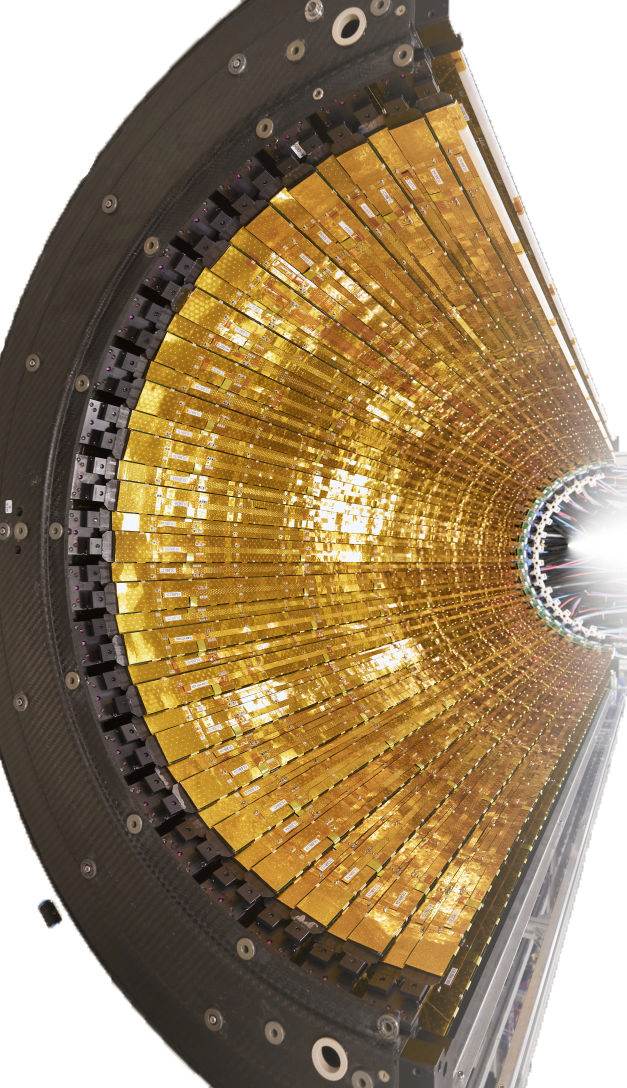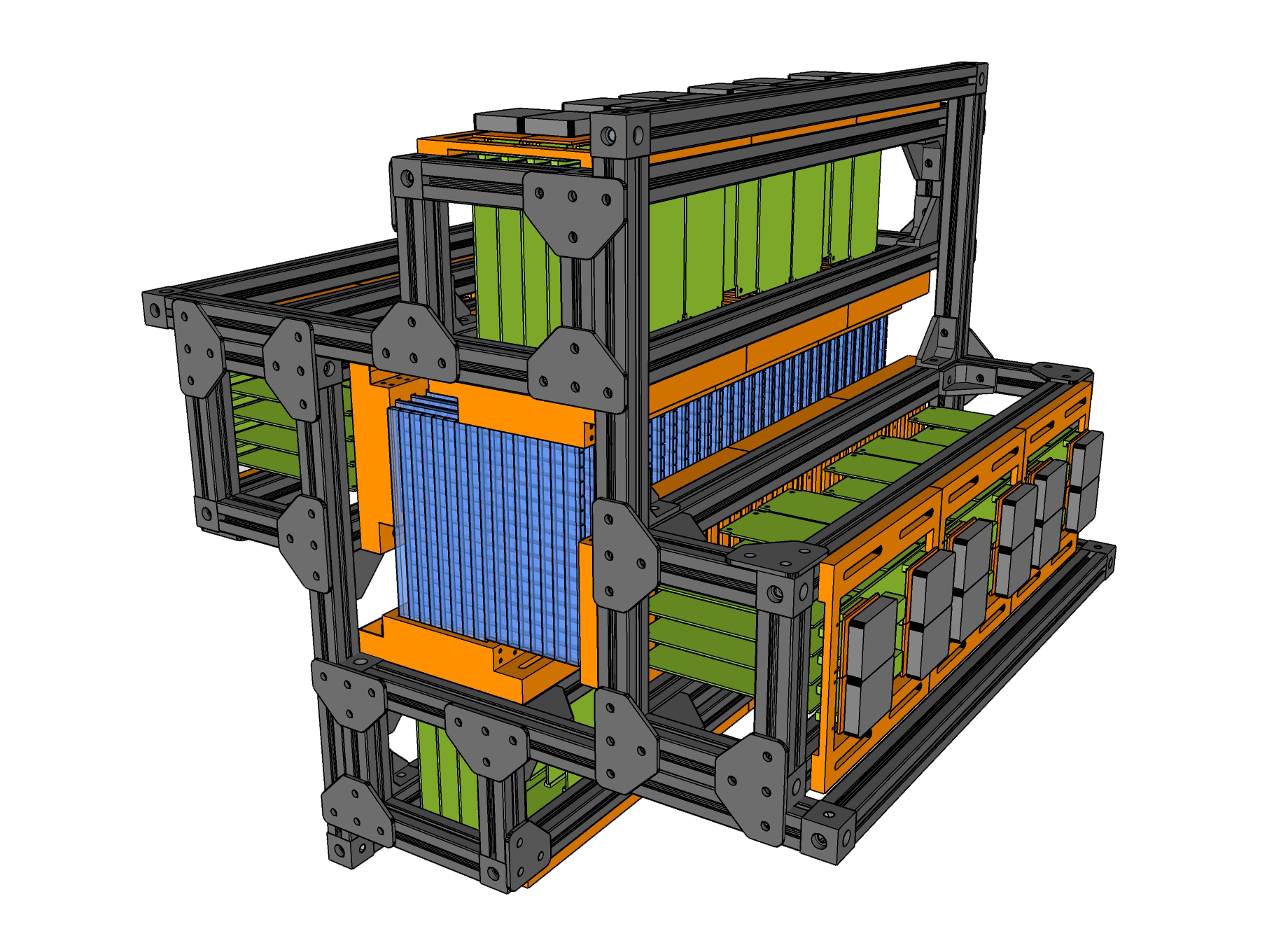Each thesis topic is usually offered at different levels: PhD, Master and Bachelor. Graduate students looking for a PhD thesis must first apply for a PhD position at the Physics Department (see here). Master and Bachelor students from any Padova University school interested in a specific thesis topic can directly contact the group.
All the proposed thesis works are part of national or international experiments and projects. Within the chosen field, the advisor will help the student defining a custom tailored thesis work which best fits her/his interests and skills.
Follow the link on each topics for a detailed description of the specific activities foreseen for that topic.

Advanced imaging for space and medical applications
Position for: PhD, Master
Instruments onboard spacecrafts require extreme performances in terms of reliability, radiation hardness, and power consumption. The same happens for proton Computed Tomography (pCT) scanners, the forefront of 3D body imaging for cancer treatment. To meet these challenges, the ARCADIA project is developing pixel sensors embodying extremely innovative design solutions.
The successful candidate will participate to the sensors
development and/or testing, focusing on electronic digital design (HDL), 3D simulations, architecture verification, and prototypes testing (including radiation hardness). She/he will also follow the sensors implementation into a prototype pCT scanner.



Advanced monolithic sensor for High Energy Physics applications
Position for: PhD, Master, Bachelor
The ALICE collaboration is developing the most advanced High Energy Physics tracking and timing detector ever, the so-called ITS3, foreseen to be installed around 2025 at the CERN Large Hadron Collider (LHC). The ITS3 will extensively use IC sensors in an extremely compact detector addressing both particles tracking, in the innermost region, and particle identification, through time-of-flight measurement in the outermost layers.
The successful candidate will work on the sensors development,
focusing (but not being limited) on electronic design, 3D simulations, architecture benchmarking, and prototypes characterization (including radiation hardness). She/he will participate to the overall development of the timing layer detector, where the sensors will be employed.

Innovative medical proton Computed Tomography for cancer
Position for: PhD, Master, Bachelor
Cancer treatment by hadroteraphy is a fast-growing field in healthcare systems, which improves the quality and effectiveness of traditional x-rays treatments. However, it is currently limited in precision due to poor imaging resolution of the tissues surrounding the tumor.
The iMPACT project aims developing a proton Computed Tomography scanners which, exploiting the same radiation beam used for the therapy (proton of energies between 100 and 250 MeV), will produce 3D images of the patient body with the required tissues density resolution, and at far lesser doses than conventional x-rays CT.



Innovative techniques for industrial CT scanners
Position for: PhD, Master, Bachelor
By exploiting the latest advancements from the High Energy Physics and Space sectors, specifically the Depleted Monolithic Active Pixel Sensors (D-MAPS), it is possible to drastically improve Computed Tomography (CT) apparatuses performances. Such improvement will impact a wide range of CT applications, including leading-edge industrial fields.
In particular, the FLECT project aims developing the technology necessary to build extremely large CT system capable of scanning large logs at high speed, to .
